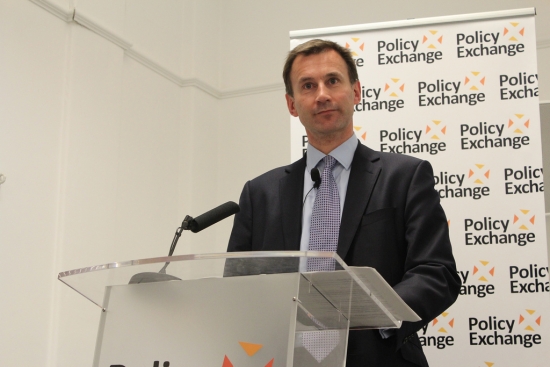The NHS has attracted increasing levels of criticism in recent months. There has been widespread concern following reports of elderly patients being left without beds, falling hygiene standards and accusations of neglect in cases involving at-risk individuals.

Jeremy Hunt MP
In response to these claims Health Secretary Jeremy Hunt has launched a new inspection regime this week, in which trusts can be placed in a special measures category designed to improve the level of care on offer. While 11 trusts have already entered into the scheme, he believes that yet more will be identified as needing additional help in the coming months.
Under the new guidelines, managers from the top NHS hospitals in the country will be placed in trusts identified as lacking in standards. This “buddy scheme” will allow these leaders to share knowledge and expertise in areas such as IT systems and patient care in order to boost levels of efficiency and patient satisfaction.
Mr Hunt believes that this system will be more successful than the previous attempt at raising standards, which utilised the skills of management consultants to identify problems but did not offer assistance in overcoming these obstacles. However, he acknowledged that it will by no means be an easy task.
He said; “Turning around our failing hospital system is perhaps one of the biggest challenges we are facing today.
“It is entirely possible, even likely, that other hospitals will have to go into special measures.”
There is one key incentive for hospitals in the special measures programme to turn things around, as bonus payments will be taken from a pot totalling £5.5 million for successful trusts. Furthermore, the hospitals participating in the scheme will be given three to five years with their “buddies” on hand in order to implement long-term changes.
However, medical and political experts have raised concerns regarding the hospitals from which managers will be transferred, believing there is a chance that they too could suffer from failing standards if suitable replacements are not found.
Chief executive of the King’s Fund think tank, Professor Chris Ham, says; “Bringing in experienced NHS managers has huge potential as long as they are given enough time to bring about change and have enough resources, and, crucially, their own hospitals are able to have the right leadership while their focus is elsewhere.
“We’ve got to get the detail right – it’s got to be a long-term objective.
“In principle if we get it right, it will level up standards; if we get it wrong it could level down standards.”
Shadow health minister Jamie Reed, meanwhile, called Hunt’s initiative a “management solution, not a front-line solution”, as he believes a lack of nursing staff lies at the root of the problem. With NHS cutbacks having taken effect in recent years, many hospitals have been forced to cut back on medical staff – a factor he believes has led to the current situation.
The results of the scheme will not truly be seen for a minimum of three years, as the changes implemented by NHS managers will take some time to filter through the UK’s failing hospitals. The question is whether this will be acceptable to taxpayers currently having to deal with substandard care in their health service.
Do you think the scheme will prove effective, or should the £5.5 million bonus fund instead be used to take on more nursing staff?
Previous Post
BDRC Deal with MEPC to Lease Silverstone Land